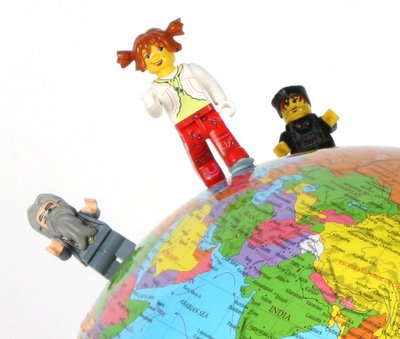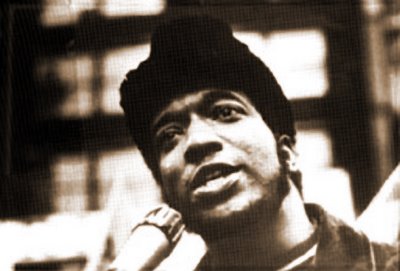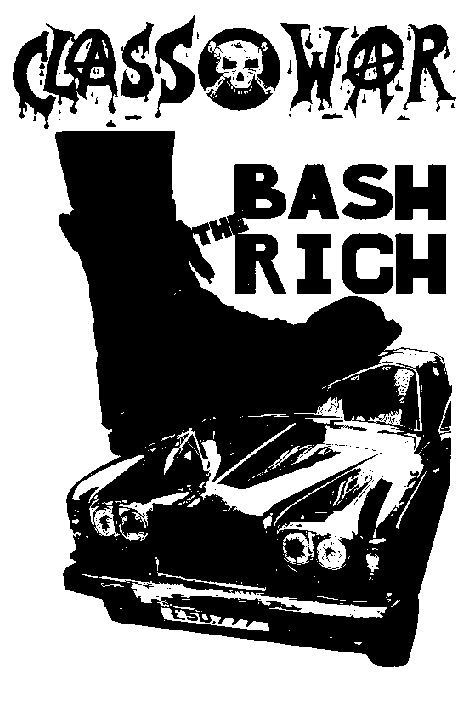Good meeting last night at the CommonPlace about recent events in France. Made me return to some nagging questions about identity, definition and movement. One person (old anarcho-type) made a strong intervention denouncing the ‘statist trade unions’ and their stewards who’d pointed out troublemakers to the riot cops. He insisted that the key point now was for the movement to define itself in opposition to all those who would ‘recuperate’ it or sell it out.
Fair enough, in some ways. But in other ways what’s been exciting about France has been how the movement has kept exploding outwards, jumping over all definitions imposed on it (from within & without). So while it’s nominally over a change to labour law, it’s quickly blowing up into something more general, a questioning of widespread ‘precarity’ etc etc. And so (jumping back on a hobby horse) we return to the idea of ‘movement’ as a moving of social relations, not a thing, but a process – and a process that has no end. One of the great pieces of graffiti from France is ‘I don’t know what I want but I know how to get it’. Apart from being punk as fuck, it’s also a great take on ‘many yeses, one no’ and ‘walking we ask questions’.
Of course part of that moving (walking?) will involve setting limits, defining ourselves etc. In D&G terms these are moments of territorialisation. These are inevitable and can be really productive. They can be pretty big & therefore more ‘permanent’ (setting up a social centre) or small & more ‘negotiable’ (eg a social centre refusing to become an ’employer’). In Paris, for example, that process of definition would enable people to defend themselves against CRS attack or those anti-social elements that the the press have seized upon – literally creating safe spaces. Or here in Leeds, setting up a social centre has involved real moments of constraint (jumping through bureaucratic and legal hoops, never mind integrating ourselves into the money economy). But it shouldn’t stop there. As soon as we draw lines in the sand they should immediately become outdated, irrelevant or obstructive. Or to put it another way, these moments of constraint are themselves productive, creating the space for us to push through them and move on again (de-territorialisation).
This is the ‘rhythm of the multitude’ (© DJ Milburn), an alternating process of contraction and expansion that’s going on all the time. Or a (non-dialectical) pulsing. We set limits but then immediately try to overcome them. The danger is that we get stuck within those definitions and stop moving. Some people from the 1 in 12 were at the meeting and they talked about how the 1 in 12 has got stuck in a very fixed identity, and is inward-looking and energy-sapping (I’m paraphrasing here). I suspect this is a common social centre problem: the building gets established and then builds its own momentum, becoming something to be defended at all costs. The CP seems to be still on an upward/outward move, but already you can see the first traces of institutionalised thinking: ‘We must have a cafe’, ‘We must have gigs’, ‘We must open during the week’ instead of asking ‘Why?‘
Anyhoo, I’ll end on an upbeat note. This is from a blog from Montpellier (emphasis added). It speaks loads about what the moving of social relations can mean:
The road to the station is blocked by a line of CRS police vans, in front of which is a small pro-CPE demo of about 10 – 15 people, in front of them there’s a line of CRS on foot, and in front of them a double line of demonstration stewards preventing a confrontation. Most of the demonstrators are not up for a confrontation, but some chuck eggs, cans, fairly light things at the pro-CPE demo. The stewards, who are mainly students, are urging demonstrators to continue quickly past – they’re really enthusiastic about giving orders. Someone ironically shouts ”Be submissive! Do as you’re told!” One of the stewards I know personally – he’s the son of anarchist friends: I shout angrily at him, ”Have you got no shame? How can you protect your enemies?” He looks upset. Lycee and technical college students hold a sit-down meeting in the big square in the centre of town, lots of different youths getting up to speak, though nothing beyond youth precarity is talked about. A cry goes out – ”To the station!”, echoed by a 16 year old girl from my village, who says she wants to occupy the railway tracks. Having given her a few English lessons a year or so before, I had no idea she was rebellious. Funny how you don’t know people until there’s a situation like this – and perhaps people don’t really begin to know themselves until there’s a situation like this …People return to the main square, where already people are drifting off towards the Corum Theatre in order to occupy it. Some think the call to go to the station was a manipulation so as to have time for the cops to get to the Corum … I see the guy I knew who’d been a demo steward protecting the pro-CPE demonstrators three hours earlier, the son of anarchist friends, and he waves me over, saying, ”What I did earlier back there was stupid, really stupid, but I was the first to get truncheoned by the cops here, trying to get into the Corum”. If I was religious, I’d call it ‘redemption’, but let’s just call it ‘radicalisation’: sometimes radicalisation only takes a few hours.









